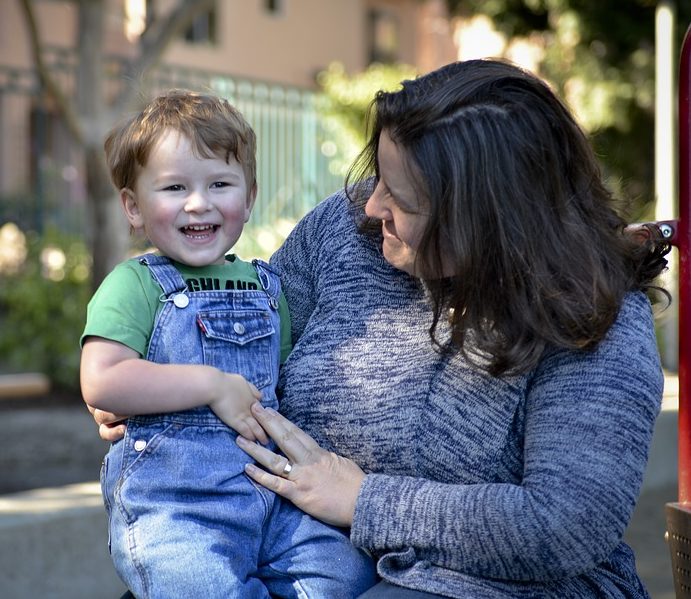 We recently spent a long weekend with my in-laws, who are the best storytellers I have ever met. They provide exquisite detail and plot twists that make even a trip to the grocery store sound enthralling. We pass many an hour sitting around the table sharing stories from the past, with everyone easily engaged, smiling, and connected (a few bottles of wine always helps).
We recently spent a long weekend with my in-laws, who are the best storytellers I have ever met. They provide exquisite detail and plot twists that make even a trip to the grocery store sound enthralling. We pass many an hour sitting around the table sharing stories from the past, with everyone easily engaged, smiling, and connected (a few bottles of wine always helps).
Since this vacation, I have been thinking more about the importance of sharing our own stories with our kids.
As I looked more into this topic, all I could find on storytelling was how it’s a dying art form. That in this day and age of technology and innovation, we rely less on the spoken word and more on numbers and data. Which, as one can imagine, is quite dehumanizing.
I also notice overall that families seem to be communicating less with each other because we are too busy and distracted by our screens, and our kids are suffering because of it.
So I’ve decided to delve more into why family storytelling is not only entertaining but crucial to the healthy social development of our children:
It’s a way to leave a legacy.
Let’s be honest, most of us won’t be remembered for curing cancer or creating a billion-dollar tech company. But if we cultivate the tradition of telling our stories to our kids and grandkids, then they will have plenty of tales of us to pass along to generations to come. I love hearing about my great-grandparents; I never had the fortune of meeting them, but I feel I know them dearly because of the many times my grandmother has recalled stories from her own childhood. Some of my favorite moments have been sitting with her as she shares fond memories of growing up with her seven brothers and sisters.
It helps us feel rooted.
Research has shown that children who know their family history are better adjusted, more resilient, and have higher levels of self-esteem. Giving our children this gift of understanding where they come from provides them with roots and a place from which to grow in a more secure and stable fashion.
It cultivates empathy.
Sharing personal stories, whether humorous, heroic, or of hardship, help our children develop compassion for others.
It helps preserve our memories.
I may not have known my grandfather beyond my teen years, but I will always have images of him cannon-balling into the pool, tending to his tomato plants, and sneaking us jellybeans at his office, mainly because my family makes the effort to remember these stories together. Without this practice, I fear those memories would fade.
It helps us stay connected to our kids.
Family storytelling is easy quality time that can happen literally anywhere—at the dinner table, in the car, or snuggling before bedtime. Opening up and talking about previous experiences—both good and bad—will help our kids understand us better and feel more connected to us, too.
It’s educational.
Whether a cautionary tale, an example of how hard work pays off, or a love story, there is a lesson in there for our children to carry with them. The next time they find themselves in a similar situation, they can draw upon their family’s past experiences to make a more informed decision.
It’s a way to encourage human connectivity.
Successful storytelling requires us to make eye contact, engage directly, experiment with inflection and tone, and most importantly, put our screens down. All very important skills for us to model for our kids.
It develops creativity.
You can enhance stories by adding enticing details that make the story more relevant or interesting—something I have learned how to do from my in-laws, who, let’s just say, exaggerate many a detail to make their story more intriguing. Or delve into a fantasy world, where kids can be encouraged to add to the story or create their own.
So the next time a memory floats through your mind, try saying something like, “This reminds me of that time when ….” and go from there. Remember to use lots of detail and build character for your protagonists. And of course, allow your children to ask questions and add to the story along the way.
Happy storytelling!
Editor’s note: This article originally published on September 21, 2017, and was reviewed and edited prior to republishing.
















